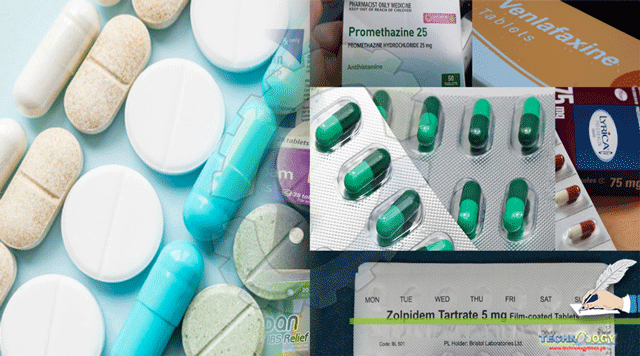A prescription is the piece of paper on which the specialist composes a request for medication and which is given to a physicist or drug specialist to get medicine. A prescription is a medication which a specialist advises the patient to take.

Authors:-
Haseeb Ahmad, Dr. Ambreen Aleem, Dr. Muhammad Shoaib khan, Dr. Waseem Ashraf and Mam Amna Manzoor
Affiliation:
FACULTY OF PHARMACY BAHAUDDIN ZAKARIYA UNIVERSITY, MULTAN.
Misuse of prescription:-
Misuse of prescription or medical practitioner endorsed pharmaceutical drugs implies picking medicines in this fashion or dose apart from recommendation; utilizing another person’s remedy, heedlessly of whether for an unaffected clinical protest like torment; or proceeding a prescription to feel ecstasy. The stint non-medical exploitation of licensed prescribed medications likewise alludes to these categorizations of miss-handle. The three classes of drug utmost customarily abused are:
Opioids—classically endorsed to treat pain
Central Nervous System [CNS] depressants (this sorting incorporates sedatives, tranquilizers, and hypnotics) — used to treat tension and rest problems
Stimulants—most repeatedly endorsed to treat attention-deficit hyperactivity disorder (ADHD)
Physician recommended drug abuse can have authentic clinical outcomes. Expansions in doctors prescribed medication abuse throughout the most current 15 years are revealed in increased emergency room official visits, over dose deaths related to doctor suggested drugs 2–5, and treatment admissions for professionally prescribed medication cause issues-the utmost sort of which is addiction.
Over-the-counter medications:-
Over-the-Counter (OTC) are medications traded straight-forwardly
to a purchaser without a prerequisite for a solution from a
medical care proficient, as contrasting to prescription drugs,
which might be provided uniquely to customers having
an authentic prescription.
|
OTC drugs with generally potential for misuse: Multiple OTC suppositories have misuse prospective. Customarily misused drugs integrate tranquilizers, ephedrine, pseudoephedrine, antihistamines, antitussives, expectorants, dextromethorphan, caffeine, diuretics, sildenafil land Laxatives and anabolic steroids. From the examinations finalized through the world for OTC medicine misuse, narcotic built recipe products and cough/cold items containing dextromethorphan, tranquilizers, antihistamines, pain killers, laxatives and hypnotics have been featured as having misuse latent. OTC codeine or other opiate-containing items and OTC cough and cold medications are the most involved in misuse. In US, Codeine isn’t accessible as OTC. Nevertheless, it is key medicine with abuse prospective in other countries. OTC codeine analgesics have been recorded as the most normally abused drug.
Number of individuals who abuse professionally prescribed medications:-
The non-medical utilization of recommendation or OTC medications infers that the client is using them for reasons other than those demonstrated in the recommending writing or on the base label. The abuse of these medications is a public issue. At International level, illicit drug usage of suggested and OTC medications have climbed up consistently.
Among individuals matured 12 or more (established in 2020):-
- 8 %( or around 16.1 million individuals) detailed abusing any prescription for non-clinical reasons during the past 12 months.
- 3 %( or around 5.1 million individuals) abused pain killers during the past 12 months.
- 2% (or around 6.2 million individuals) abused sedatives or tranquilizers in beyond a year.
- 8% (or around 5.1 million individuals) abused stimulants in beyond a year.
Source: – 2020 National Survey on Drug Use and Health
Chronic drug use Effects:-
Recreational OTC medication use can also change the brain chemistry over time. Ultimately, the user constructs a resistance to drugs, requiring a greater amount of substance to get the past impacts.
Normal Signs of OTC chronic drug misuse includes:
- Mood Swings
- Memory Lapses
- Changes in hunger and dozing designs
- Absence of interest in leisure activities and standard exercises
Those dependent on OTC medications possibly develop withdrawal symptoms when they quit utilizing. Normal symptoms of OTC medication withdrawal include:
- Agitation
- Anxiety
- Confusion
- Irritability
- Temperament(Mood) changes
Drug addiction Treatment:-
Those experiencing OTC chronic drug use, have numerous therapy choices. Individual and gathering treatments, psychological well-being advising, and psychotherapies like Cognitive Behavioral Therapy (CBT) are on the whole compelling treatment strategies.
Inpatient and outpatient rehab programs permit those recuperating from OTC chronic drug addiction the assets to get and remain calm. Taking on a medication recovery program can altogether lessen the chances of backslide.
Pharmacist’s role in Prevention:-
Pharmacists are the primary resource during the acquisition of prescriptions. Drug specialists can assist patients with understanding directions for taking their prescriptions alongside the way in which the medications work for their conditions. Also, by being vigilant for prescription distortions or alterations, pharmacists can fill in as the principal lines of safety in remarking risky cases in consultant approved medication use. They are needed to screen OTC medicine use among a particular populace. For instance, on account of old patients, who take different medications, pharmacist ought to be more cautious. Additionally, clients who demand for regular top-ups should be checked too including OTC prescriptions utilized. Druggists can be more active in overseeing OTC prescription misuse by using their experimental abilities, by giving uttered and composed medicine data, and by creating trust among clients. Platforms similar to doctor prescribed medication checking log evidence about a client upon fill-ups of physician endorsed medications. While in the event that a comparable program was systematized for OTC drugs, the individual would need to visit a similar drug store generally. Consequently, execution of such a program may not be even minded.
A few techniques utilized by drug specialists to lessen OTC prescription abuse have been recommended. It is exhibited that 62% of drug specialists revealed the actions being taken to check OTC medicine misuse:-
- keeping implicated items hidden
- Inquiring on the acquisition of these items by drug specialist
- Denial to sale the embroiled items
A few different procedures utilized and announced by pharmacists to diminish OTC prescription misuse were consignment to a doctor, remission to drug and alcohol abuse team and inclusion of drug specialists in maltreatment lessening platforms.